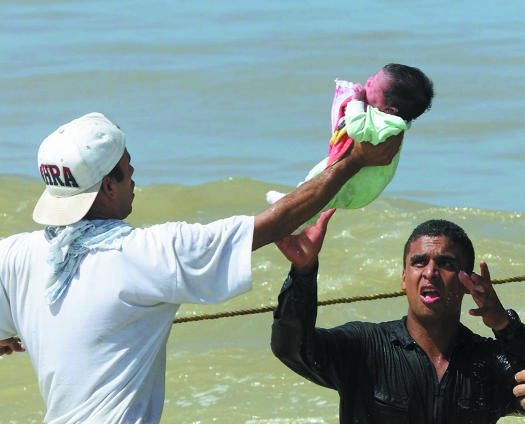Six months after devastating floods and landslides left up to 30000 people dead or missing and 200000 homeless, Venezuela is being inundated again—by a flood of unusable medical aid. Harrowing television pictures of the disaster last December in the coastal states of Vargas and Falcon, near Caracas, sparked a massive humanitarian response, and tonnes of medicines are still arriving from all around the world.
However, health workers helping the victims say thathuge quantities of medical aid remain stockpiled in warehouses, and up to 70% of it will have to be incinerated. A report by the government's Pharmacological Production Service (Servicio de Elaboraciones Farmacologicas) says many products cannot be used because they are out of date, unnecessary, have been partially used, or have no Spanish labelling. As a result, the government has already had to spend at least 10m bolivars (£10000, $16000) to hire extra staff and increase working hours simply to classify what has been received.
Dr Francisco Griffin, director general of the service, said some companies had even deliberately sent expired products—considered as toxic waste—to evade the cost of having to deal with them themselves. The World Health Organization set guidelines to help improve aid provision after the war in Kosovo, where it was estimated that the cost of destroying unusable products exceeded their original value.
However, Dr Griffin accepted that the production service had not anticipated such a massive international response to the landslides. When the disorganised nature of the donations—and the “titanic work” required to sort through them—became clear, adverts were belatedly posted on the websites of international organisations asking only for specifically requested products.
Meanwhile, a telephone helpline set up by a group of psychologists from Caracas University to help the victims, and which went on to become a successful Samaritans-style support line for all the people of the capital, has had to close down. The service has run out of funds, and the Department of Health says it cannot afford to help. Fears are also growing that last year's disaster is set to recur, because hundreds of displaced people have returned to their collapsing shanties, built on steep hillsides in the poorest areas of Caracas.
Figure.
RICARDO MAZALAN/AP
A young evacuee is bundled onto a ferry to escape flooding in Vargas, Venezuela



